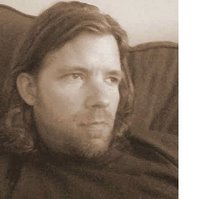Go ahead, call me a weirdo, but in general I see most of the problems in the world not as something grand and “other”, but as extensions of the problems we each face individually such as dysfunction within our families. Described loosely, a dysfunctional relationship would be a relationship between any two parties that is non-functioning and typified by abusive or co-dependent behaviors. While historical and cultural legacies are the sources of many dysfunctions in the world, the lack of honest communication is what I believe perpetuates and exacerbates them.
I’ve often said that the purpose of being and adult is to overcome the trauma of childhood. If you think about it, from the time of birth, babies and children are trying to sort out the world. It is an ever-constant process of learning. On the one hand, kids have no frame of reference for placing experiences in context thus distorting the significance of the experience. And, on the other hand, their parents and primary teachers usually have little clue as to what they are doing. Needless to say, lots of mistakes are made on both sides of the equation, but that is part of the deal of the human experience. This is where intelligence and rational thinking come into play as it allows us to review and size up our past experiences. As adults, we may continue to live in the shadow of these dysfunctions, or we have the opportunity to accept responsibility for who we are and that implies ridding ourselves of dysfunctional thoughts and behaviors.
The key to dysfunction is a party’s unwillingness to admit their role in conflict, that is to say, a failure in communication. Oddly, I believe this psychological phenomenon developed as a result of language itself. Other animals do not have dysfunctional relationships. Since humans developed language, our consciousness became bifurcated by a logic structure, framed by words, that is not necessarily logical! For example, many people see admitting mistakes as a weakness. While it can be traced back to our survival instincts, logically it doesn’t make sense. In fact, the very definition of intelligence is the ability to recognize and admit flaws or mistakes in order to correct them, build upon the experience and grow. As I see it, admitting one’s mistakes is an affirmation of confidence in oneself and the hope the learning process offers.
So, how is humanity dysfunctional? Well, to get specific would delve into the realm of political incorrectness, which means political correctness itself is a manifestation of our dysfunction! In general terms, where there is conflict or discrimination, the relationship is dysfunctional -- this would seem to include every country and culture in the world. Here is a good guide as where to find dysfunction: look for stifled discussions, whether they be politically, religiously or culturally motivated. From the American political system to our foreign policy, from Latino machismo to the Hindu caste system, from the Korean conflict to the crisis in the Middle East, the list seems endless.
The things we don’t want to talk about are the things we need to talk about. As I am fond of reminding people, since we haven’t perfected our ability to read minds, the best we can do failing all else is to communicate. The pattern that emerges in these dysfunctional relationships is a failure to offer respect due to our survival complex. But, the other pattern that emerges is that our failure to properly address these issues is fueling the dangers that plague humanity today. But once again, it is easy to project the source of problems onto something else when in reality the seeds are planted with how we individually resolve issues in our personal lives. To achieve lasting results, you have to first work on the dysfunction that exists within yourself – in other words, the gap between what you believe and what you project to others. This is the hardest because it is quiet, dark and only you can truly sense and see the full extent of it. But once dysfunction is understood within oneself, the desire to rid oneself of this burden becomes infectious.
No one is perfect and I too struggle to rid my life of dysfunction. But, in a world where dysfunction is the norm its a difficult goal to achieve. Again, the power of example is perhaps the most important element in ridding the world of this very real and harmful element that plagues our civilization and threatens to bring it down. First the bad news: getting rid of dysfunction just does not “happen” – it only occurs with effort and conscious choices. The good news? As excruciating as plowing through these dysfunctions may seem, when you reach the other side you realize it was not that big a deal after all and that happiness is within your grasp. So, everyone, start making lists of things you don’t want to discuss, because one thing is certain, everyone has a list ;-).
Monday, January 29, 2007
Subscribe to:
Post Comments (Atom)

No comments:
Post a Comment